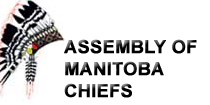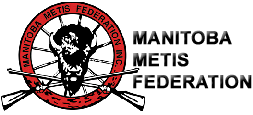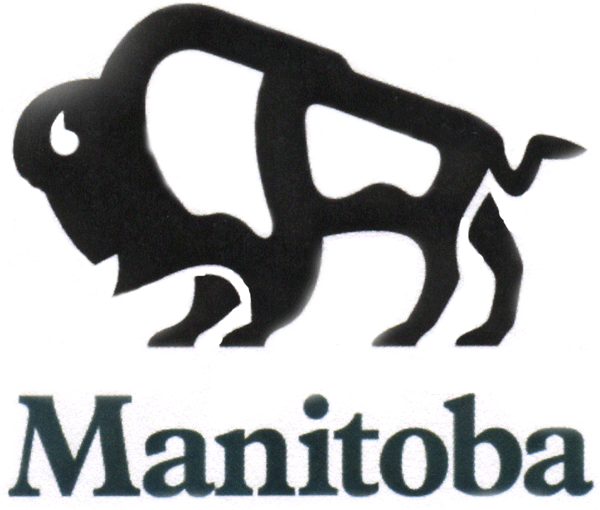




 |
||||
 |
 |
 |
 |
|
|
All pages on this site were archived on February 16, 2007 |
||
| |
November 24, 2003 Legislation Proclaimed Restructuring Child and Family Services System
The new Child and Family Services Authorities Act is an essential part of the major restructuring of Manitoba’s child and family services system. The legislation creates four new child and family services authorities, three Aboriginal and one general authority, to manage delivery of services under the restructured system. "This legislation is unprecedented in Canada and means culturally appropriate services can now be provided for children and families in Manitoba, which was a key recommendation of the Aboriginal Justice Inquiry (AJI)," said Melnick. "We are grateful for the leading role our First Nations and Metis partners have played as we developed this important legislation and we are pleased it received unanimous support in the Manitoba legislature." The historic process of changing the system was led by the Aboriginal Justice Inquiry - Child Welfare Initiative (AJI-CWI), which included representatives of the provincial government, the Manitoba Metis Federation, Assembly of Manitoba Chiefs and Manitoba Keewatinowi Okimakanak. This initiative, along with child and family services representatives, examined ways to address the child welfare recommendations of the AJI report, as recommended by the Aboriginal Justice Inquiry Commission. Manitobans also provided input on the restructuring of the child and family services system, based on a vision document called Promise of Hope: Commitment to Change. Over 1,000 people provided comments during public consultations held across the province in 2001. "We are pleased to be able to lay the groundwork for improvements to the child and family services system," said Oscar Lathlin, minister of Aboriginal and northern affairs. "The changes recognize the right of First Nations and Metis people to control their own child and family services and make the system more responsive to the needs of all Manitobans." The four new authorities created through this new act are:
The four authorities will now begin the day-to-day work to ensure children are protected and that children and families receive services in a timely and efficient way. There are 18 agencies throughout Manitoba that will deliver services on behalf of the four new authorities. Caseloads, resources and assets are now beginning to be transferred to the most culturally appropriate authority and their respective agencies. This means First Nations and Metis children and families will have access to services through the new agencies, no matter where they live in Manitoba. Foster families can now decide which agency they will work with when applying for a licence. These transfers are being done on a region-by-region basis and are expected to be completed in late 2004. The process is beginning in the Interlake Region where the First Nations agencies Peguis, Intertribal and Anishinaabe Child and Family Services will begin to receive case transfers. "Today is a proud and historic day for Metis people, not only in Manitoba but across our nation," said David Chartrand, president of the Manitoba Metis Federation. "Decision-making responsibility for child and family services is now placed in the hands of Metis people, for Metis people. The Metis Child and Family Services Authority will ensure services are delivered in a way that respects and honours our distinct culture and will follow our philosophy that families are to be treated with dignity, respect and understanding." "This proclamation is a monumental accomplishment by all parties in achieving a recognition and affirmation of jurisdictional responsibility for our children and their future," said Grand Chief Dennis White Bird of the Assembly of Manitoba Chiefs (AMC). "The Assembly of Manitoba Chiefs acknowledges the good will shown by our partners in restoring the right for First Nations in caring for and protecting our children. The injustices created by the ‘60s scoop’ are now finally being addressed through the success of the Aboriginal Justice Inquiry - Child Welfare Initiative." "We view this act as a way to ensure that our children are cared for in a manner that reflects our culture, traditions and philosophy," said Dr. Sydney Garrioch, grand chief of the Manitoba Keewatinowi Okimakanak. "As we move forward down this path, let us always remember that it is the love we have for our children, families and communities that will make this legislation work." There are approximately 15,000 families, provincewide, receiving services through the child and family services system. Information on the AJI-CWI process and the new legislation is available on the Internet at http://www.aji-cwi.mb.ca. - 30 - Background Information.
BackgroundThe restructuring of Manitoba’s child and family services system started with the announcement in 1999 of the provincial government's commitment to address the recommendations of the Aboriginal Justice Inquiry (AJI) and establish the Aboriginal Justice Implementation Commission to advise the government on methods of implementing recommendations. The commission prioritized issues of family and child welfare and recommended that the Manitoba government enter into an agreement to develop a plan that would result in First Nations and Metis peoples developing and delivering Aboriginal child welfare services. The AJI report of 1991 stated the non-Aboriginal child and family services system did not serve Aboriginal people well and recommended changes, including:
Through negotiations with First Nations and Metis leaders, three agreements and a multi-lateral protocol were signed by:
These agreements provided the framework for the Aboriginal Justice Inquiry - Child Welfare Initiative which, through a common process, began to develop and oversee implementation of a plan to restructure the child welfare system in Manitoba. An essential feature of this restructuring is expansion of off-reserve authority for First Nations and establishment of a provincewide Metis mandate. Currently, there are approximately 15,000 Manitoba families receiving child welfare services across Manitoba, including those living on reserve. It is anticipated that more than 5,000 will choose to transfer to one of the new Aboriginal agencies. Chronology:February 2000 - The Manitoba Metis Federation signed a memorandum of agreement (MOU) with the Government of Manitoba creating a unique, mandated Metis child and family services system. April 2000 - The Assembly of Manitoba Chiefs, on behalf of 36 southern First Nations communities, signed an MOU with the Government of Manitoba, expanding the on-reserve delivery of child and family services to First Nations people living outside their communities. July 2000 - The Manitoba Keewatinowi Okimakanak signed an MOU with Manitoba, expanding the on-reserve delivery of child and family services to First Nations people living outside their communities. This covered four First Nations agencies that provide services to 27 northern communities. October 2000 - The Manitoba Metis Federation, Assembly of Manitoba Chiefs, Manitoba Keewatinowi Okimakanak and the Manitoba government announced the establishment of a common process to address restructuring of the child and family services system. The common process was launched with a training and transition session. August 2001 - A comprehensive vision paper that proposed changes to the child and family services system was released to the public by provincial government, Metis and First Nations leaders. Promise of Hope: Commitment to Change outlined changes in government policy and also proposed the creation of four new child and family authorities. The vision document was for public review and feedback. A large number of town hall meetings were held as part of the overall process and the public was also able to submit comments in writing. November 2001 - The Manitoba government announced plans to create the General Authority, which would eventually serve non-Aboriginal families in the new child and family services system. The General Authority would be a key part of the restructuring as Manitoba continued to develop the Aboriginal Justice Inquiry - Child Welfare Initiative. January 2002 - A summary of the public’s response to proposed changes was completed and made public. The report included key themes developed from the comments of over 1,000 people. The summary identified widespread support for the ongoing restructuring and confirmed the importance of recognizing the right of First Nations and Metis peoples to develop and control their own child and family services. June 2002 - Proposed legislation to create an improved child and family services system was introduced in the Manitoba legislature. The proposed act was an important first step in creating four new authorities that would manage the delivery of services under a restructured system. The four new organizations are:
Child and Family Services Authorities:Each authority administers and provides for the delivery of child and family services to families who identify with their respective authority. For example:
Duties and Powers of Authorities:Each authority oversees the provision of child and family and adoption services to families. Mandating Agencies:In the legislation, authorities do not provide child and family services directly. Instead, authorities must provide for the delivery of child and family services through one or more agencies. The authority is empowered by the legislation to grant mandates to its agencies. Review and Appeal Process Available:The legislation sets out a review and appeal process if foster parents object to an agency decision to remove a child from their home. If it is reasonable to do so, the process allows for the child to remain in the home until the review and appeal is completed. The final level of appeal includes an independent hearing by persons appointed by the minister from a roster of persons established after consulting with the authorities and other affected persons. This legislation was introduced in the legislative assembly for first reading on June 10, 2002. It passed third reading and received royal assent on Aug. 9, 2002, with the unanimous support of the house. With the proclamation of the act on Nov. 24, 2003, the transfer of cases begins. As there are more than 15,000 families served provincewide by the child and family services system, the transition of cases will occur in stages, beginning in the Interlake region. The transition is expected to be completed by late 2004. Information on the AJI-CWI process, copies of public documents and the legislation itself is available on the Internet at http://www.aji-cwi.mb.ca. Information on the Aboriginal Justice Inquiry Commission can be found at http://www.ajic.mb.ca. - 30 -
|
|